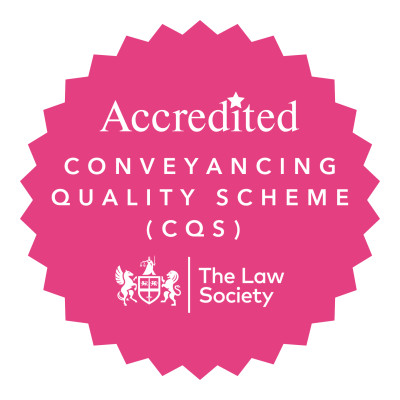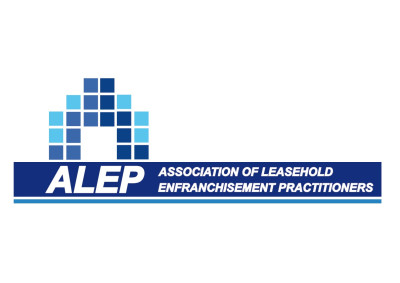CLOSE SEARCH

As one of the UK's largest, fastest growing, and most popular property law firms, we are an ideal choice if you need to extend your lease, getting the job done for you as quickly and proactively as possible at a competitive cost.
We provide a nationwide service, with a number of offices, and with a large (9 offices) and strong presence in London.
The main reason prompting the need to extend a long lease is when selling (because your buyer will probably need a mortgage) or remortgaging.
If your lease drops below around 80 years, many mortgage lenders won’t lend on it, and buyers may not want to buy it. This makes it harder to sell or remortgage. Extending the lease keeps the property marketable and its value stable.
If you have owned the long leasehold of your flat for more than 2 years, your freeholder cannot prevent you from extending the lease for an additional 90 years. This is known as the section 42 process.
There are two ways to extend a lease:
Informal (voluntary) extension – you negotiate directly with your freeholder to agree terms and price. This is the most common approach (especially if you own a share of the freehold), usually quicker, and avoids formal notices or tribunal involvement. The vast majority of lease extensions are completed this way.
Statutory extension – if an agreement cannot be reached, the legal process under the Leasehold Reform, Housing and Urban Development Act 1993 can be used. This involves serving formal notices and, if needed, going to a tribunal to decide the premium and terms.
If eligible, you can opt for an informal or statutory lease extension process. Should you try to negotiate informally and are unable to agree then you can opt for the statutory process instead.
If you own a leasehold flat, you may be able to extend your lease by agreement with your freeholder, rather than going through the formal statutory route. This is often quicker and more straightforward.
The steps involved will be :-
1. Agreement in principle – you and your freeholder agree the terms (length of extension, whether a premium is payable, and who pays costs).
2. Drafting the paperwork – a solicitor prepares either a new lease or a deed of variation to record the extension.
3. Mortgage lender consent – if your flat is mortgaged, your lender must provide their consent to the same and provide a sealed Deed of Substituted Security, which you will also have to sign.
4. Execution – the leaseholder and the freeholder (or their company/directors) sign. If a management company is a party to the lease, they will also need to sign the new lease
5. Completion – the freeholder will provide a completion statement setting out their costs and the premium and you will be required to transfer the monies to our account so that we can formally complete the lease on your behalf.
6. Registration – the new lease is registered at HM Land Registry, and any mortgage is re-registered against it.
The premium payable to extend the lease will vary upon factors including the length of the lease and the value of the flat. If you cannot agree a premium with the freeholder, there is a statutory formula for calculating what the premium should be depending on some variables, most importantly, the number of years left.
We strongly recommend that you instruct a specialist Surveyor to prepare a valuation report on your behalf. This will set out the likely premium payable.
In addition to your own legal and surveyor fees, you will also have to pay the freeholder’s legal and surveyors fees.
Overall, you should expect to pay professional fees of approximately £3000- £5,000.00 plus VAT.
Aside from legal and surveyor fees, there are a few other charges to be aware of:
Premium – the amount you pay the freeholder to extend the lease (if required).
Land Registry fees – payable to register the new lease. The amount depends on the property value and lease length. If a Tribunal application is required then there will also be issue and hearing fees.
Mortgage lender fees –some lenders charge an administration fee for giving consent and signing the documents.
Freeholder’s costs – you may be responsible for the freeholder’s reasonable legal and administrative expenses.
Stamp Duty Land Tax (rare) – only payable if the premium is over the threshold of £40,000
If a premium is payable for your lease extension, there are a few ways to fund it:
Savings – many leaseholders use personal savings to cover the cost.
Remortgage – some owners refinance their flat, borrowing extra funds to cover the premium and fees.
Further advance – an additional loan from your existing mortgage lender may be available.
Equity release – in some circumstances, older homeowners use equity release products to unlock value and fund the extension.
We can work alongside your mortgage broker or lender to make sure the funding is lined up and the lender’s consent is obtained in good time.
Yes, in most cases it will.
A longer lease makes your flat easier to sell and more attractive to buyers.
Mortgage lenders generally require a minimum lease length (often 80 - 85 years at the time of purchase). Extending removes that concern.
Short leases (under 80 years) can suffer a sharp fall in value. Extending reverses that decline and helps protect your investment.
In practical terms, the cost of the extension often translates into added market value. Estate agents frequently recommend dealing with the lease length before putting a property on the market.
Even with an “informal” lease extension, the process involves legally binding documents, mortgage lender involvement, and Land Registry registration. If mistakes are made, the extension may not be valid or could cause problems when you come to sell.
We will:
Negotiate terms where needed.
Draft or review the extension deed.
Obtain and deal with mortgage lender consent.
Ensure all documents are properly executed and registered.
In a shared freehold situation, it is generally not in any of the leaseholders interests to charge each other to extend leases, as all will need to extend. For more information, see our detailed guide on share of freehold lease extensions.


-400.jpg)

Telephone -
9am to 5pm
We also have a number of specialist lawyer consultants who may not be featured below. Use the search function below if you want to find other lawyers for this legal service.
“”
Call the Taylor Rose team or fill out the form below and we will get back to you as soon as possible.
Telephone opening hours -
9am to 5pm